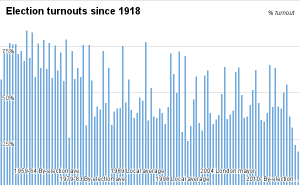There has been a small kerfuffle over the appearance of Jonathan Portes, Director of NIESR, at the Treasury Select Committee. Portes was there to discuss NIESR’s latest economic forecasts and encountered unexpectedly aggressive questioning about his political beliefs from one of the Members. Jesse Norman claimed Portes’ statement that the Government’s austerity plans had ‘failed’ relied upon his personal politics. Portes responded that, while his opinions might be politically relevant, they were purely positive economics.
Norman has now clarified on his blog (HT) that he is specifically saying that reaching a conclusion about a policy’s ‘failure’ requires a normative judgment. Regular readers of TVHE will know that we entirely support Mr Norman’s view that policy judgements require normative statements. Given that a normative statement doesn’t have a right or wrong answer, it must at least be influenced by the same set of personal beliefs as a political view. Hence, it may be that knowing somebody’s personal, political view is helpful for interpreting some of their policy judgements. However, there is a spectrum of normative judgements from those that would be agreed with by only people who share one’s specific political views to those that would be agreeable to experts of all political stripes.
In this case it is clear that Portes statement about ‘failure’ referred to two things: the results of a NIESR modelling exercise, and a belief that the UK’s current economic predicament is due to a demand shortage. His conclusions about each require value judgements, but not the sort that would usually generate a political division among serious macroeconomists—which isn’t to say they’re not divided! Norman, despite his protestations, was not seeking to engage in a discussion about whether the specific value judgements were likely to be politically motivated. Rather, he sought to discredit Portes view of gilt rates by casting aspersions upon his independence.
It is episodes such as these that discourage experts from contributing to the policy debate, even when they have much to contribute. That is a great shame. As Antonio Fatas says
…some of what we do as academics is not useful enough for policy makers, and in these circumstances is better to be honest and stay out of the debate. But …one can find answers to those questions after careful thinking and a lot of data analysis.
…
policy makers need to choose a number, not a range. [Academics] can be criticized on their assumptions or calculations but not on their willingness to advance the knowledge on an issue of great policy relevance. If any, they should be praised as academics who want to go beyond writing great papers to make those papers useful for policy makers or society at large.

